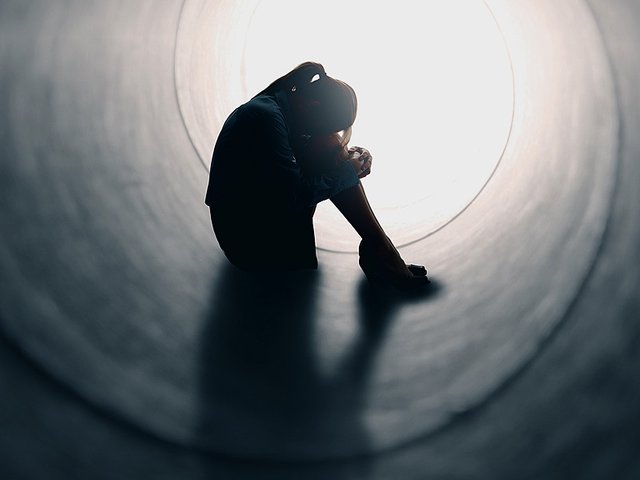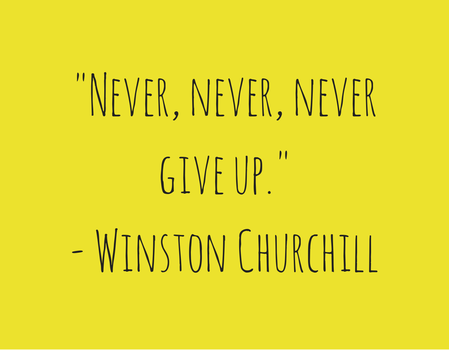Dealing With Depression
Depression in a simple meaning: Depression is a mood disorder that affects the way you think, feel, and behave or also it's the state of feeling down,an unhappy state, having a low moral which stretches longer than several weeks or even months and may include the involvement of self-inflicted injury or suicide.

Depression Include:
- Feeling sad and down consistently over a period of at least two weeks.
- Fatigue, and the feeling that doing things takes a lot of your time.
- Inability to enjoy activities you once loved, such as reading, drawing, playing video games, etc.
- Inability to function normally in everyday life.
- Persistent sadness, including fits of crying either uncontrollably or being set off easily, feelings of anxiety or emptiness.
- Feelings of worthlessness, self-blame and a lack of self esteem.
- Sleeping a lot more or less than usual, or experiencing insomnia.
- Unusual weight loss or gain, overeating or loss of appetite.
- Finding thinking or concentrating difficult, "foggy" thinking, inability to make clear decisions or forgetfulness.
- Body pains, cramps , digestive problems, headaches, and other aches that don't go away with medication or treatment.
- Feeling irritable or restless a great deal of the time.
- Suicidal thoughts, thoughts about dying, or attempts of suicide.
People disappoint us, things go wrong, we loose people we love, relationship issues, work pressure, failed dreams etc all this listed factors may easily lead to depression and can interfere with you ability to interact wit people and have a happy life.
Provided that you have someone to talk to, medical professionals and ability to access support network around you readily, at this point even severe depression is treatable.


The thing about depression is there is no quick fix, some people may result to drugs, some alcohol some may even engage in violent acts to feel better, all this may serve as antidepressant which might make you feel better almost immediately after engaging them but mind you if you most often find comfort in drugs and alcohol in beating down depression at this point addiction starts to set in and at the long run this might result to something even worse.
But a long term healing from depression takes work, consistent work. What that work entails depends on the person, but no matter what's involved it's worth the time investment.
How Does Depression Affect Our Brain.
"Some people may experience mild depression only once in their lives, while others have several severe episodes over their lifetime. This more serious, long-lasting and intense form of depression is known as Major Depressive Disorder (MDD). It may also be referred to as clinical depression or major depression.
There are three parts of the brain that appear to play a role in MDD: the hippocampus, amygdala, and prefrontal cortex.
The hippocampus is located near the center of the brain. It stores memories and regulates the production of a hormone called cortisol. The body releases cortisol during times of physical and mental stress, including during times of depression. Problems can occur when excessive amounts of cortisol are sent to the brain due to a stressful event or a chemical imbalance in the body. In a healthy brain, brain cells (neurons) are produced throughout a person’s adult life in a part of the hippocampus called the dentate gyrus. In people with MDD, however, the long-term exposure to increased cortisol levels can slow the production of new neurons and cause the neurons in the hippocampus to shrink. This can lead to memory problems.
The prefrontal cortex is located in the very front of the brain. It is responsible for regulating emotions, making decisions, and forming memories. When the body produces an excess amount of cortisol, the prefrontal cortex also appears to shrink.
The amygdala is the part of the brain that facilitates emotional responses, such as pleasure and fear. In people with MDD, the amygdala becomes enlarged and more active as a result of constant exposure to high levels of cortisol. An enlarged and hyperactive amygdala, along with abnormal activity in other parts of the brain, can result in disturbances in sleep and activity patterns. It can also cause the body to release irregular amounts of hormones and other chemicals in the body, leading to further complications.
Many researchers believe high cortisol levels play the biggest role in changing the physical structure and chemical activities of the brain, triggering the onset of MDD. Normally, cortisol levels are highest in the morning and decrease at night. In people with MDD, however, cortisol levels are always elevated, even at night."
Researchers also believe that psychotherapy can alter brain structure and help relieve MDD symptoms. Specifically, psychotherapy appears to strengthen the prefrontal cortex.
There are other ways to boost brain health and help recover from MDD without medical intervention. These include:
- Eating healthful foods and staying active, which stimulates brain cells and strengthens communication between brain cells.
- Sleeping well, which helps grow and repair brain cells
- Avoiding alcohol and illegal drugs, which can destroy brain cells
Visit this Link to read more about The Effects Of Depression On The Brain from HealthLine
People who haven't suffered from depression have a tough time understanding it. So if you are among those who is just experiencing depression maybe for the first time you need not panic, you just have to first take time to access yourself and how you plan to deal with it.
While some people are stronger at handling emotions than others, it is possible that they mostly don't feel depressed for a long period of time compared to some other people.
Helpful Tips On Dealing With Depression
- Firstly you look for signs of depression. If you haven't already sought out help for your depression, it is vital you do so and don't try to go through this alone. Seek advice from the doctor.
- Try to take a therapy one of the most helpful solution for depression, there are a range of therapy treatment options, and each therapist will have his/her own unique style. You will have the best chance of being successful in therapy if you feel comfortable with your therapist.
- Sleep well. Sleep is essential, to a healthy, balanced body. Lack of sleep can aggravate negative thinking and easily becomes a repeated cycle whereby your negative thoughts keep you awake and disable your ability to get enough sleep.
- Exercise more frequently. Exercise releases a natural antidepressant chemical in your brain and gets you into doing something creative. Look for friends or group exercise sessions since having a partner will keep you more motivated.
- Eat Healthy foods. Reduce your intake of sugar, high fructose corn syrup, fast foods and processed foods. Eat more fruits, vegetables and whole foods. Drink plenty of water and do some research on food that are said to improve your mind and wellbeing. Improving your diet can be a positive project to keep you constructively occupied and focused when you're working through your depression.
- Replace any neglected grooming. it can be easy to pay no attention to your appearance when depressed, reintroducingdaily daily attention to grooming can help improve your mood and give you a sense of well being. Get a new hair cut/hair-do or new clothes as part of cheering yourself up.
- Maintain a good support network. Support from people who love and care about you is an important part of healing process. Tell people you trust that you are depressed and would appreciate their understanding and sympathy.
- Be around positive people. Talk with friends, family and colleagues that make you feel good and who are fun to be around. Spend time with people who see the world in a positive way and ask them to share their visions, ideas, and approaches to life with you. Most positive people will be more than happy to reveal the things that help them keep upbeat and happy about their lives. Learn from them.
- Keep occupied. Being busy is a way to avoid negative thoughts from going around your head repeatedly. Engage in a hobby you enjoy or think you'll enjoy. Immerse yourself in it. It doesn't have to be expensive or difficult. As long as it's interesting it will serve the purpose. Care for pets, show love to people.
- Do fun things and treat yourself right. Feeling down feeds on itself and it soon becomes an idea when you convince yourselfthat you don't deserve to enjoy anything. The antidote is to do things that you used to enjoy or that are fun for the people around you. "One fun thing a day to keep the blues away"
- Avoid isolation. Try to be more social, be more friendly with positive people, go out often, take long walks and admire the natural environment.
- Help others. This can be a good way of moving through your depression once its better under control, and its often an ideal technique to use when your healing seems to be temporarily stable. Helping other people going through hardship removes your concentration from yourself and onto others, which can be good if you are prone to too much introspection.
- Understand the importance of overcoming negative thinking. This is a vital aspect of working through depression, you have to understand the health wise effects of negative thinking and try as much as possible to avoid it.
- Look for the good. Sit back and try to find the good in your life. Whatever it is, it is worth finding. Be positive about yourself. Replace happy thoughts with memories of happier times, you are always in control of what you are thinking about so as much as possible replace negative thoughts with positive ones.
- Change the way you talk. Alter the language you use to help yourself look at things more positively. By saying "at least..." this turns negative to positive and rather than regretting over something ask yourself "what have i learned from this". Encourage positivity.
- Accept that depression may return. If you have dealt with depression before, now you have to recognize the warning signs and take constructive actions to deal with it earlier on before it starts. Aim to minimize its impact and duration.

Everyone's path is different and there's no doubt about that, it doesn't mean that anyone who's suffered from depression would shear the same conclusion. There are quite different perspectives about depression, and each is equally valid. For some people, medication is crucial. For others, long term physiotherapy might be the answer but whatever the answer is to easing depression I say get at it and don't give up.
wow great post bro
Thanks a lot :)